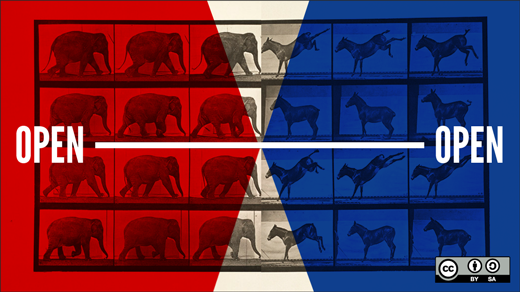As those steeped in the policy wonk geekery of open data are likely already aware, last Thursday the President of the United States issued an Executive Order Making Open and Machine Readable the New Default for Government Information.
This is, quite frankly, a big deal. Further down in the post I’ve got some links and some further explanations why.
That said, the White House called and asked if I would be willing to provide some context about the significance of the order – which I did. You can read my reaction, along with those of a number of people I respect, here. Carl Malamud is, as always, the most succinct and dramatic.
Here are some further thoughts:
Relevant Links
A link to the press release
White House CTO, Todd Park, and CIO, Steve VanRoekel, explaining Open Government Data and its significance.
A fact sheet on the announcement
A link to the Executive Order
A policy memo about the Executive
And, perhaps most interestingly, a link to Project Open Data, a site with a TON of resources about doing open data within government, including job descriptions, best practices and even tools (e.g. code) you can download to help with an open data deployment in at the city, state or national level. Indeed if you are a public servant reading this (and, I know many of you are), I strongly encourage you to take a look at this site. Tools here could save you tens to hundreds of thousands of dollars in software development costs for a range of projects. I love this example, for one: Kickstart—"A simple WordPress plugin to help agencies kickstart their open data efforts by allowing citizens to browse existing datasets and vote for suggested priorities."
What the White House did right
Here is the genius of this executive order. At its core it deals with something that is hard to communicate to a lot of people in a meaningful way. Here is the executive order for dummies version: This is essentially a core change to procurement and information publication. From a procurement perspective it basically means from now on, if you work in the US government and you buy a computer or software that is going to store or collect data, it sure as hell better be able to export it in a way that others can re-use it. From a information publication perspective, having the ability to publish the data is not sufficient, you actually have to publish the data.
This change is actually quite wide ranging. So much so that it could be hard for many people to understand its significance. This is why I love the emphasis on what I would refer to as strategic data sets – data sets on healthcare, education, energy and safety. While the order pertains to data that is much, much broader than this, talking about datasets like the 5-Star Safety Ratings System about almost every vehicle in America or data on most appliances’ Energy Star rating brings it down to earth. This is information the average American can wrap their head around and agree should be made more widely available.
The point is that while I’m in favour of making government data more available, I’m particularly interested in using it to drive for policy outcomes that are in the public interest. Finding better ways to get people safety, health, energy or education data in their hands at the moment they are making an important decision is something open data can facilitate. If, when you are making a purchase or about to create a new project, there is some software that can filter your choices by safety rating or prompt you to rethink your criteria in a way that will enhance your safety or reduce your carbon footprint, I find that compelling. So more availability to government data for research or even just access… yes! But access to specific data sets with the goal of improving specific outcomes is also very important, and this is clearly one of the goals of this order.
What this executive order is not
It is important to note what this Executive Order is not. While I think it can help citizens make better choices, improve access to some types of information, offer researchers and policy wonks more data to test theories and propose solutions and improve productivity within and outside government, I do not think it will not change politics in America. Had this order existed, it would not have magically prevented the Iraq War by, for example, making CIA analysis more scrutable. Nor will it directly rein in lobbyists or make money matter less. This is more about changing the way government works, not the effect that politics has on government decisions. Maybe it will have that impact in the long run (or the opposite impact), but it will be through second and third order effects that I’m all too happy to confess that I currently don’t see.
No one is claiming that this release somehow makes the US government “open” – there are still lots of examples about policies and processes in the White House that require greater transparency. Transparency and openness in government move on several axes. Progress along one axis does not automatically mean there is progress along all axes. And even progress will foster new challenges and demand new types of vigilance. For example, I also suspect, over time, the order may impact what data governments elect to collect, if, by default, it is to be made open. The order could, in some cases, make the data more political, something I’ve argued here.
This is to say that there is no panacea and this order does not create some perfectly transparent government. But it is an important step, and one that other governments should be looking at closely. It is an effort to reposition government to better participate in and be relevant in a data driven and networked world, and it does foster a level of access around a class of information, data, that is too often kept hidden from citizens. For that reason, it is worthy of much praise.






1 Comment